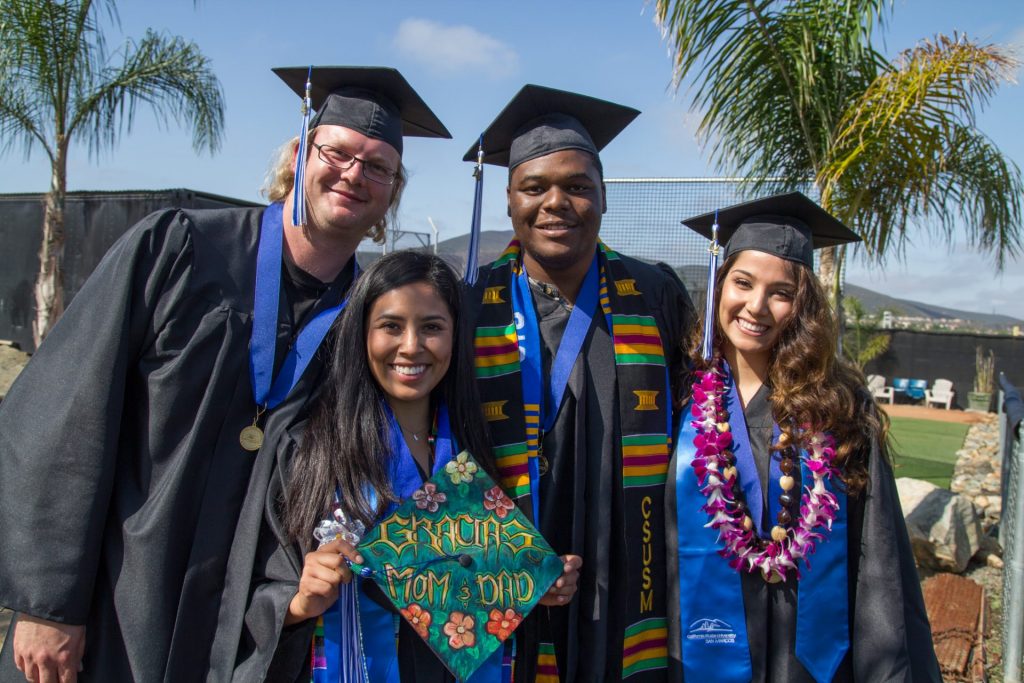
Since its founding in 1989, Cal State San Marcos (CSUSM) has put its commitment to social mobility at the forefront of its educational mission. The university’s dedication to economic opportunity was recognized this week when it was named among the nation’s leaders in social mobility.
The Social Mobility Index
CSUSM ranks 36th nationally out of almost 1,500 schools measured in the sixth annual Social Mobility Index (SMI) by CollegeNET.
The SMI focuses directly on the factors that enable economic mobility. The index is computed from five variables: published tuition, percentage of students whose families have incomes below $48,000 (slightly below the U.S. median), graduation rate, median salary approximately five years after graduation, and endowment size.
“Nationally, higher education is often called out for reinforcing inequality rather than closing socioeconomic gaps,” said EDC Board Member and CSUSM President Ellen Neufeldt “However, our rising SMI ranking embodies our collective efforts to serve any student who dreams of the opportunities that come with a college education as we help them reach their full potential.”
CSUSM improved its ranking in the SMI for the fourth consecutive year. The university ranked 74th in 2015, 62nd in 2016, 54th in 2017, and 52nd last year.
How CSUSM is creating a more inclusive San Diego
As EDC looks to create a more inclusive San Diego, CSUSM and other regional educational institutions are playing a pioneering role in San Diego’s strategy. Afterall, CSUSM is a crucial part of creating a sustainable talent pipeline. Nearly 80 percent of its graduates remain in the region following graduation. In 2018, the university opened its engineering program, creating a technical talent pipeline for companies such as Viasat and emerging regional startups.
CSUSM is trying to correct systematic inequities in that are often ever-present in the educational system. More than half (54 percent) of its graduates are first-generation bachelor’s degree recipients. Additionally, nearly half of its students qualify for Federal Pell Grants. In order to support students from all backgrounds, the university offers community-based learning opportunities, internships, undergraduate research opportunities and more to ensure student success.
Help us create a more inclusive San Diego.
Learn more about EDC’s Inclusive growth work
Related EDC articles and research: